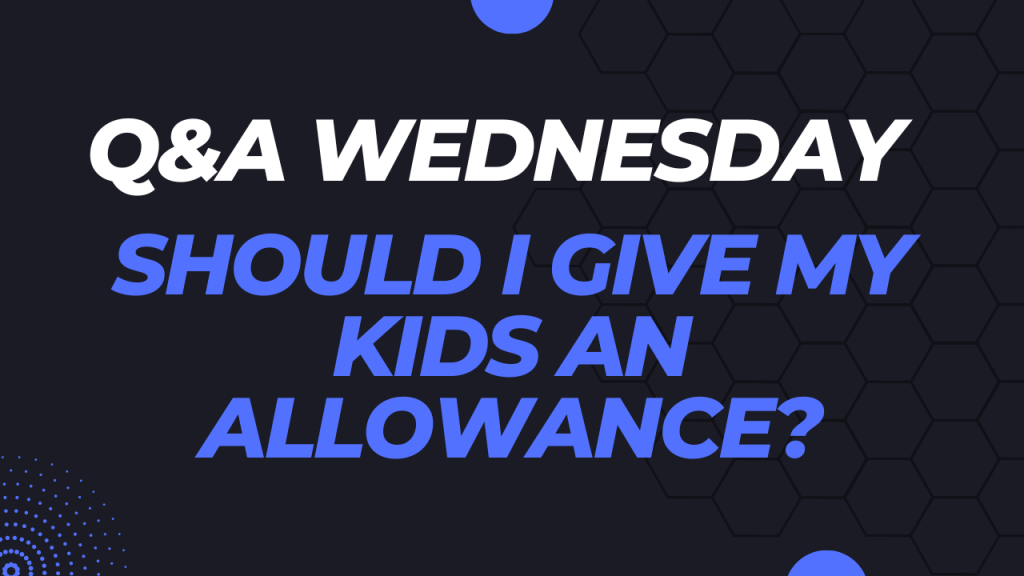Welcome to Q & A Wednesday on Millionaire Habits, where I answer one of your questions every week for the benefit of over 26,000 people.
💡 Question: “Steve, should I give my kids an allowance?”
I can’t think of a better way to teach your kids responsibility and money management than by giving them an allowance. However, there are so many different ways to structure how this works.
In other words, your kid’s allowance doesn’t need to be a “freebie.”
Here are a few ideas to consider to make your kid’s allowance effective.
How to Pay Your Kid
When I was younger, I got an allowance starting at 13. It helped me learn how to manage money, save up for stuff and take care of it because, after all, it was my money I used to buy it, not my parent’s.
I’m a big fan of teaching your kids the value of money with a weekly allowance.
But it doesn’t need to be a hand-out, either.
Here are a few ways to make your kids earn their allowance:
Chores and Responsibilities: Assign specific chores and responsibilities to your kids, and tie their allowance to getting those jobs done. This can include tasks like making their bed, doing the dishes, taking out the trash, or helping with household cleaning. Create a chore chart or checklist, and when they successfully complete the tasks, they earn their allowance for that week.
Grades and Academic Achievement: You can set academic goals for your kids, and based on their performance in school, they can earn an allowance. For example, achieving a certain grade point average or completing a certain number of hours of study can be linked to their allowance.
Personal Projects: Encourage your kids to pursue personal projects or hobbies, and offer to fund these endeavors through their allowance. Whether it’s learning a musical instrument, painting, or any other skill, they can earn an allowance by showing dedication and progress in these areas.
Behavior and Attitude: Tie part of their allowance to their behavior and attitude at home or school. Encourage positive behavior, respectful communication, and helpfulness. Implement a reward system where they earn an additional allowance for demonstrating good behavior consistently.
Saving and Budgeting: Teach your kids about saving and budgeting by setting a portion of their allowance as savings. You can match their savings contributions or provide incentives for reaching specific savings goals.
Entrepreneurial Ventures: Encourage your kids to start small entrepreneurial ventures, like selling lemonade and homemade crafts or offering services like pet sitting or lawn mowing in the neighborhood. They can earn their allowance based on their income from these ventures.
Family Goals: Involve your kids in setting family financial goals, like saving for a family vacation or a specific purchase. They can earn their allowance by contributing to these shared objectives.
Chat later,
– Steve



